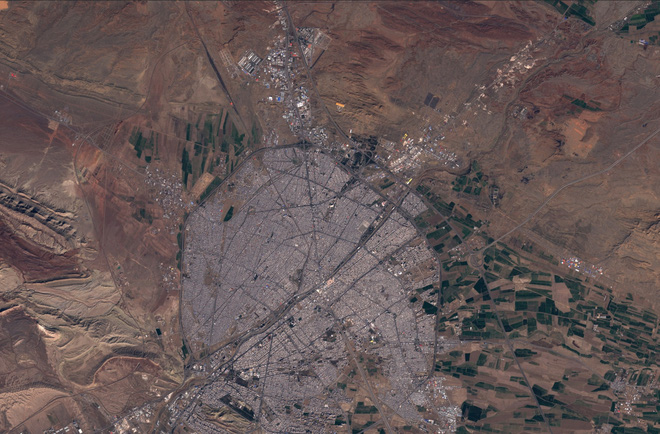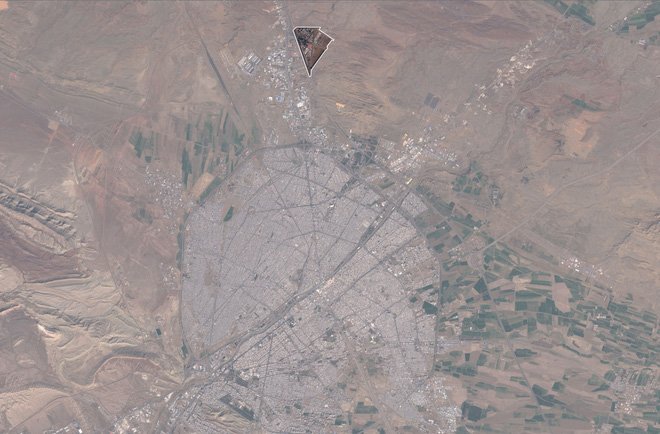The burial chamber of the deceased due to Covid-19 in Iran is large enough to be seen from space
The Washington Post reported that just two days after Iran announced the first case of a new strain of coronavirus (SARS-CoV-2), evidence of some "unusual" actions at the cemetery near the epidemic occurred. The disease appears.
At the Behesht-e Masoumeh complex in Qom city, about 100km south of Tehran, satellite imagery shows a plot of land in the cemetery being dug up from February 21. Virus outbreaks, soil grooves are also expanding. By the end of February 2020, two large trenches with a total length of 90m (equal to the length of a football field) were formed, so large that they could be observed from space satellites.


Cemetery area in Qom city
"Collective grave" for victims of pandemic Covid-19
According to an anonymous analyst, the ditch was used to bury victims killed by a new strain of virus in Qom City.
Iran, a country of 80 million people, is suffering from a devastating outbreak of Covid-19 that touches the country's leaders. The Iranian Ministry of Health said that 429 people died in the country today, more than 10,000 were infected, making it the third largest outbreak in the world after China and Italy. Among the dead included members of parliament, a former diplomat, even advisers to senior leaders. At least 26 civil servants were infected, including the vice president of the nation.



Image one of 2 trenches

Statistics show that 846 people were exposed to the virus in Qom city. The Iranian government has not released the death toll in this city, knowing only 1.2 million residents live there. But according to the Washington Post, videos, satellite images and data from the northern cemetery of the city show that the actual number of people infected by the virus may be larger than imagined.
An image analyst at technology firm Maxar Technologies (Colorado, USA) said the size and speed of excavation in Qom did not match the common burial ritual in this area. Some viral videos on social media show the tombs lined up in Behesht-e Masoumeh, and that it is for victims who died of the new strain of the virus.

The expert, who spoke on condition of anonymity because of his work sensitivity, also showed photos of the presence of white lime in large quantities, which could be used to control the decomposition process and the smell emitted from the corpse. . The Iranian Ministry of Health itself in recent weeks also confirmed the use of white lime when burial victims of the pandemic.
The graves lasted to the end
In a video posted on the BBC on March 3, the narrator described the image at the Behesht-e Masoumeh cemetery, when the men carried a coffin toward the ditch with endless stretching tombs. . At that time, Qom - like many other parts of Iran - was hit by an epidemic, causing thousands of infections and overwhelming the city's health system.
"This is a ward for virus victims," - the conductor said, turning the camera toward the ditch where staff in protective clothing stand by. "More than 80 people have been buried here." - this person emphasized the number, and said the video was shot on February 28.
In another video, the announcer said he was at Behesht-e Masoumeh cemetery on March 3 - 2 weeks after the first case in Iran appeared."An employee said they had to bury at least 250 people." - the speaker said.
"All of the graves are very new. They have only been in the last few days. And you can see, the gutter stretches to the very end."
You should read it
- ★ Thanks to light, we know the history of the universe and the composition of distant celestial bodies
- ★ 10 strange and interesting facts about the universe you may not have heard of
- ★ Scientists conclude that the universe should have been wiped out since its formation
- ★ How many planets are there in the universe?
- ★ 14 interesting facts about the universe amaze you